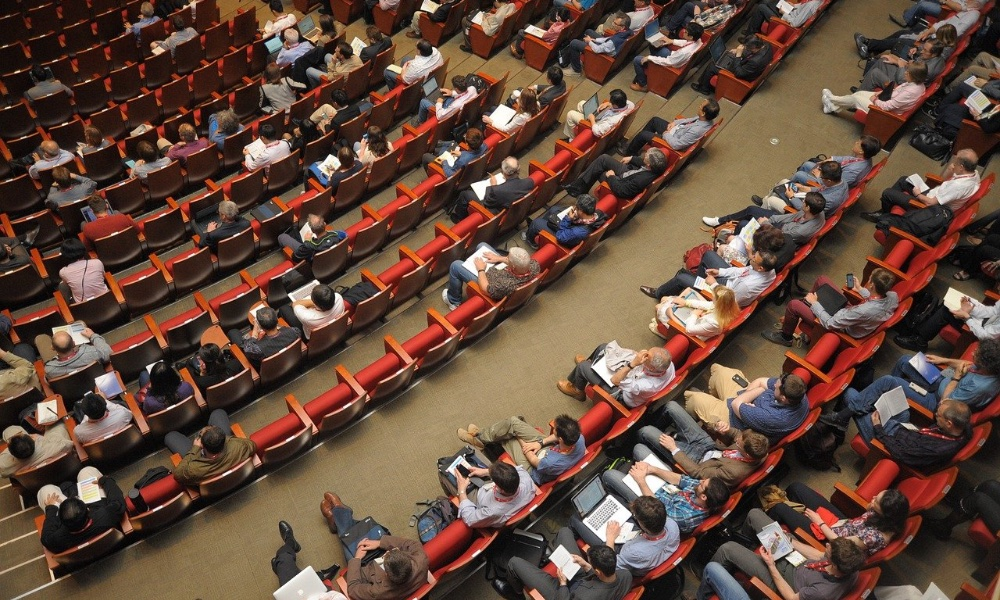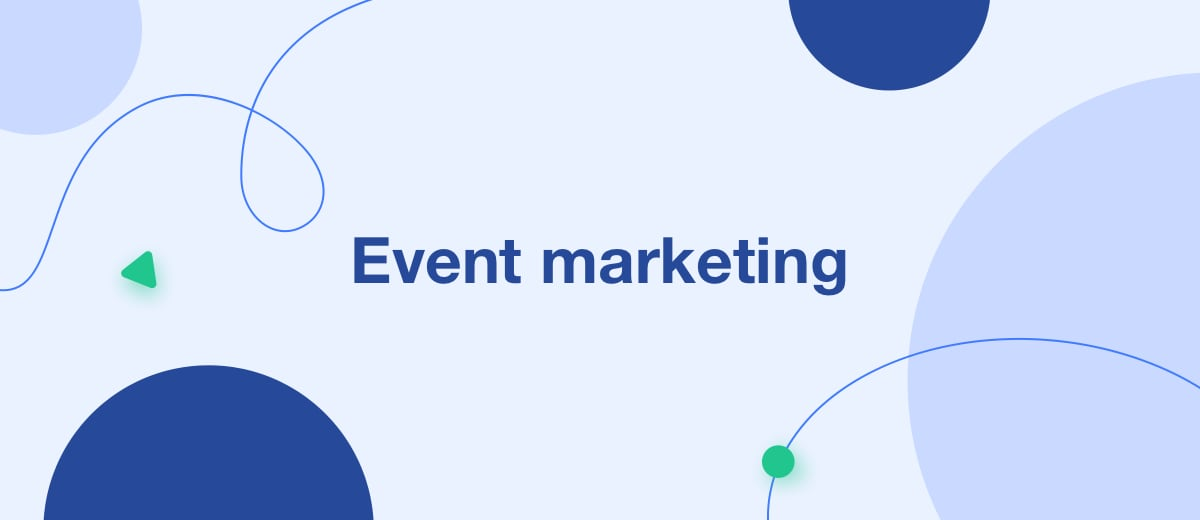The modern advertising industry is oversaturated with direct advertising (ATL). Large-scale campaigns on television, Internet, and outdoor advertising require enormous financial expenses that do not even pay off. It is not surprising that many brands are actively looking for alternative channels to promote their products and services, testing various indirect marketing methods like BTL and TTL.
Event marketing techniques are considered to be very popular among them. In this article, you will learn how event marketing works, what types, benefits, uses and effective strategies exist.
What is event marketing?
Event marketing is a modern complex technology that includes elements of direct (ATL) and indirect (BTL) advertising, as well as public relations created to promote brands and their products through specially organized events.
Event marketing allows you to organize events for a variety of occasions, from the introduction of new products or services to corporate anniversaries and industry conferences. As a rule, all such campaigns have a similar scenario. First, the organizers announce the upcoming event and invite guests, then they conduct the program of the event, and upon completion, sum up results.

Goals and objectives of event marketing
Event marketing technology's key goal is to promote companies/brands and their products, as well as stimulate the loyalty of the target audience. When training in event marketing more deeply, specialists learn about many additional tasks in this area. It allows them to make their campaigns more effective, flexibly adjusting them to the subject matter and specifics of the advertised brand and product. So, event marketing is suitable for achieving of following goals:
- to introduce brand or product to the target audience or remind about it
- to increase demand for a product or keep it at a certain level
- to stimulate the audience to buy a product
- to present new products or business area
- to create news feeds for public relations and the media
- to attract new customers from an existing or new target audience
- to create and promote a positive company/product image
Types and examples of event marketing
According to experts, event marketing includes three main event types: trade events, corporate events, and special events. As for specific examples, there are the following ones:
Presentations
This type of business event is intended to present new products to the audience in order to improve sales performance and attract new customers. It is one of the most popular areas of event marketing because a well-prepared presentation well-prepared presentation well-prepared presentation helps to show all the benefits/advantages of the product and effectively stimulate sales. Additionally, you could also add a QR code to your presentation using a pdf QR code generator so that the audience can directly download the presentation or document to their device and thus boost sales.
Content:
1. What is event marketing?
2. Goals and objectives of event marketing
3. Types and examples of event marketing
4. Event Marketing Benefits
5. Event Marketing stages
6. Conclusion: Events are beneficial
Event marketing allows you to organize events for a variety of occasions, from the introduction of new products or services to corporate anniversaries and industry conferences.
Conferences
This category includes business events. Their purpose is to promote a company/product through training and familiarization programs involving the audience. Conferences are one of the most massive areas of event marketing, as they gather a large number of participants, including industry leaders and experts. To maximize your brand exposure at conferences, you can make brochures and pamphlets and distribute them at your booth, making it easier for attendees to learn more about your products or services. Conferences are beneficial for organizers and invitees, as they are considered a very effective networking tool.
Exhibitions
Exhibitions and expositions, as a rule, unite the products of several (up to tens and hundreds) companies of the same industry. These large-scale events help brands demonstrate their products/services, attract new customers and business partners, and make profitable deals.
Seminars
The main principle of this type is "event marketing as training", which makes it possible to promote the brand and increase audience loyalty through the educational format. Most often, seminars are held for a limited number of participants and include presentations and discussions in their program. As with conferences, seminars are an important networking tool. A more "compact" version of the seminars is a round table, where industry experts are invited to discuss crucial issues. And a more massive form of seminars is a forum.
Pop-Up shops
Pop-up shops or stores are mobile retail outlets that can be located anywhere: in shopping malls, at exhibitions, entertainment events, or just in the middle of a street. The main advantage of this format is the mobility: brands can literally follow their target audience, offering their products at the right time and in the right place.
Holidays and parties
This category includes open and closed corporate events dedicated to any important company event. For example, an occasion may be a company anniversary, a launch of a new branch or business line, launching or completing a project, etc. We should also highlight parties on the occasion of official holidays like New Year, where important clients and business partners are invited.

Other usual event marketing tools include workshops, fairs, promo actions, trainings, festivals, and charity events.
Event marketing benefits
Event marketing enjoys well-deserved respect among marketers and top managers. Let us take a look at the list of its main advantages:
- Sales. Well-prepared events are a powerful lead generation channel. During the events, a large number of transactions are concluded. In addition, when the audience is warmed up, a significant increase in sales is observed even sometime after.
- Loyalty. Events help businesses establish personal communication with customers and create a human brand. As a result, the audience becomes more loyal, and it encourages customers to buy the company's product more often.
- Recognition. Event marketing directs the target audience's attention to the brand and product, making it more famous and recognizable. Moreover, these events are a good informational reason for the company's PR in the media and on the Internet.
- Education. Finally, another advantage of event marketing is the ability to educate the audience, revealing all benefits of the product in solving certain problems and tasks.
Event marketing stages
| 1. Formation of goals and objectives | Attracting a new audience, stimulating the loyalty of existing customers, strengthening or changing the image, creating a news feed, etc. |
| 2. Definition of target audience | Allocation of a target segment which the event will be focused on, preparation of a list of participants. |
| 3. Event type selection | Determining the format and theme of the event, writing a script. |
| 4. Promotion | Informing the audience about the upcoming event via the website, mailing, SMS, instant messengers, social networks, outdoor advertising, POS materials and other channels. |
| 5. Execution | Carrying out the event program with photo shooting, video recording and webcast. |
| 6. Summarizing | Analysis of event statistics and performance indicators, and feedback collection. |
Conclusion: Events are beneficial
Event marketing is a highly effective way to promote brands and their products through events like exhibitions, presentations, conferences, seminars, pop-up shops, festivals, parties, etc. Event marketing helps improve sales indicators, attract new customers and build the loyalty of the existing audience, and create a firm positive brand image.
Do you want to achieve your goals in business, career, and life faster and better? Do it with SaveMyLeads – a tool that will save you from the routine work, and free up additional time for realizing your goals. Test the capabilities of SaveMyLeads for free and enjoy the effectiveness of this tool.
